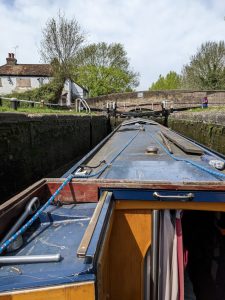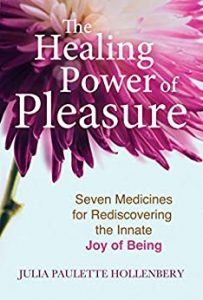- NVIS Notes and Resourcesby Grae
These are a few notes and links about NVIS propagation and antennas. This is in the context of setting up reliable-ish NVIS connections for regular morse QSOs for practice.
NVIS Propagation
Reflections at high angles (near 90 degrees) to the ionosphere only happen when below the critical frequency, known as f0F2.
For the UK, looks like f0F2 in daylight can be over 10MHz, but at night is likely to sit at 4MHz or possibly lower. So in terms of useful ham bands, 80m at night, 40m in the day are probably what will work best.
Maps of f0F2, both derived from
So, worth considering antennas for 80 and 40.
Antennas
Needs to cover 80m and 40m, with 60m as a bonus and possibly 160m if it can be done.
For me, I need an end fed wires for NVIS: https://practicalantennas.com/applications/nvis/end-fed/
One note from “The NVIS Illusion that is interesting:
Ground waves are transmitted by just about every antenna and extend to the local horizon. In the area close to the transmitting station it is likely that the ground wave will interfere with the received NVIS signal to produce fading (QSB) or other effects. It is a good idea to keep transmitted power low to mitigate this effect.
So low power might be sensible here, or experimenting with lowering power might be useful to stop ground wave propagation interfering with NVIS.
References and reading
- Iambic Paddle wiringby Grae
I always have to look up how to wire an iambic paddle to a 3.5mm or 6.5mm TRS (tip, ring, sleeve) jack and which paddle is which. I’m left handed and have over time taught myself different left handed and right handed paddling so what I’ wiring to what is easy to get backwards.
You want the dits on the thumb, and the dahs on the fingers. And on the connector, the tip pulled to ground makes dist, the ring pulled to ground makes dahs, and the sleeve is the ground.
Here’s the table to explain this:
Symbol Left handed Right handed TRS Connector dits right paddle left paddle tip dahs left paddle right paddle ring ground – – sleeve TRS wiring for iambic paddles, and what to use when Ideally I’d wire all my paddles the same, and that should be to use the right-handed setup — more common, then adjust to reverse the paddles in software. This to allow swapping paddles and avoiding confusion.
- Slowing down thinking — an experimentby Grae
Something I’m experimenting with… consciously slowing my thoughts and speech — for a couple of reasons or occasions:
- In the late evening, close to bedtime I slow my speaking and slow my thinking to prepare for sleep. I don’t mean zoning out, I mean just slowing down thinking and speech — and thus breath as well. It also is nice and helpful to sit in front of a fire, or turn the lighting more yellow/red, or turn the lights off or down. Very relaxing and leads naturally into sleepiness.
- In the early morning before stuff kicks off, and at spots later in the day, slowing thinking helps to bring me back down from the stressy speed of full on work or life. Again, this is not stopping thinking or zoning out. Keep at it, but slow down. There’s a quality improvement here in thinking too, when done a bit more slowly. And it feels great.
- Saturday 2023-01-07by Grae
Stories around the possibility of change — temporary and permanent. Listen in the player below or see the website above.
- Friday 2023-01-06by Grae
Operant Conditioning Chamber aka Skinner Box (Wikipedia)
Slot machines and online games are sometimes cited as examples of human devices that use sophisticated operant schedules of reinforcement to reward repetitive actions.
WikipediaRoblox sounds awful for young kids (twitter thread by @Arumi_kai)
It appears that many all-ages games have dodgy content and programming. Not really surprising, but it is easy for parents to just assume that somebody is actually trying to moderate content. Doesn’t look like moderation is fit for purpose.
- Thursday 2022-12-15by Grae
Wikipedia: Incompatible_Timesharing_System
Computer operating system built by MIT AI Lab – notable for interesting principles of openness, collaborative approach, development of hacker culture. For example; adding a available-to-anybody system command to crash the computer to help take away the temptation of hackers trying to find a way to crash the system. Led to emerging early programming hacker culture and principles, and ideas around free and open source software.
Zen and the art of Radiotelegraphy
Ebook by ham operator Carlo Consoli, IK0YGJ. I think this is the best description of why and how to learn to use Morse Code for telegraph and radio communications. Suggests meditation before periods of practice.
PiDP-8/I – Hardware emulation of digital PDP-8 including front panel
Includes a front panel with proper switches and blinking lights.
- Monday 2022-12-05: Regenerative Businessby Grae
On recommendation of a dear friend; I’ve started reading this. This is a 1970s perspective on why capitalism doesn’t respect natural capital, seeing it as income to be spent.
https://ethique.co.uk/blogs/regeneration/what-is-regenerative-business
- Friday 2022-12-02by Grae
Washington Post opinion: Americans are choosing to be alone. Here’s why we should reverse that.
Seems that people are spending more time along since the pandemic — but there was already a trend in that direction
A way to describe how to budget personal energy — used in the context of managing chronic fatigue or long COVID.
- What is this narrowboat life?
 by Grae
by GraeI said I’d have a go at the How and Why of narrowboat life. This is a bit of that.
I discovered narrowboats when living in London in the 1990s. Wandering around Maida Vale and Camden, the canal is just there. I’ve always enjoyed, no, loved, anything to do with boats. I grew up sailing dinghies in the ocean, and seem to fall in love with any boat or yacht I can get my hands on.
Back a couple of years, I got to try out narrowboating for about six months over winter. And I loved it.
Narrowboating – living aboard, is a very Elemental way to live. By that I mean — close to the elements: Water, Air, Fire, Earth. Hot and cold are close. Off grid. A walk to the car if you even have one close. Birds: ducks, geese, swans everywhere. The canals are rich with life and often seem like nature corridors through urban places.
As a life, it is less safe (in the way that my home is afloat, and like any boat, could sink), and more engaged. It is less easy to hide in a nice warm house and binge Netflix. There’s more agency here. That sometimes looks like logistics (ie. carrying stuff from place to place) but that’s not so bad for somebody who works in front of a laptop. I need that physical stuff.
Now, let’s talk about Engineering. I’m an Engineer. I like making things and solving engineering problems: Electrics, mechanical stuff, batteries, engines, solar panels — all materials I like to work with. Boats are great for this stuff. There’s always something that needs work or a problem to solve.
Adventure. I need some adventure in my life. What’s around the next bend in the canal? Where will I stop for the night? Like hiking, but I’m taking my home with me. I like maps, mapping, finding places, exploring.
Yes, adventure, but not in an Indiana Jones kind of way. The pace of things here on the canals is slow. Narrowboats move slowly (about walking pace). Locks take time to fill and empty. Filling with water takes time. Opening and closing lock gates is a constant lesson in applying energy carefully. Moving a 57foot many-ton steel boat needs to be done with patience and care.
I like this life. It sure isn’t for everyone. For me, it is just right.
- Truths for Nowby Grae
As truth lies bleeding on the floor
the greedy grasp evermoreI sense disquiet in my friends, in me:
What to believe? what to do?Silence, disbelief, despair, and then:
Feet flat on the earth
Standing Strong in life
With hearty common sense
These are my truths for now:- Most people mean well;
- Conspiracies are hard to organise; and even harder to keep secret
- Others may be careless, less often cruel
- I’d rather talk than turn away in silence
- I trust my instincts, my body, my heart
And here is my weakness:
I believe all will be well.
What if it isn’t this time? - Um 2021by Grae
I’ve been trying to write something; some sort of retrospective of 2021. I’m struggling with it. So when I work out what I want to say, I’ll put that here. In the meantime, here are some things to be getting on with – giving some hints on where my thinking has been so far:
- A podcast that really, really does a good job at looking at truth, surveillance capitalism, and democracy; and why Facebook is basically pretty evil: Facebook & Unheeded Advice (with Roger McNamee and Joyce Vance)
- A little and powerful book: On Tyranny: Twenty Lessons from the Twentieth Century by Timothy Snider.
- Pleasure as the engine of being
 by Grae
by GraeWhat if we put our own pleasure higher up the list – instead of at the end of the long days of work, or as a reward for toil? Julia Paulette Hollenbery asks, and elegantly and practically answers this in her new book “The Healing Power of Pleasure: Seven Medicines for Rediscovering the Innate Joy of Being”.
This is a poetic and kind book made from a life of learning and experience. It brings together science, spiritual tradition, embodiment and philosophy — many many references and ideas, into a pleasure and body-centered way of being.
It was a joyful read for me. As I read, I enjoyed feeling the connections come together — practices I knew, ideas I believed, ways I’d learned to help myself — converging into something bigger. Pleasure as a birthright, a force, a way into my body, a way into relationships, a way to see the world.
Julia starts with Mess — the way we are in the world around us, right now, then proceeds through the seven “medicines” we can use to shift ourselves and our world in the direction of pleasure. Each “medicine” can be seen as an antidote for the crazy disconnected way we all seem to live . There are practical exercises for each medicine to bring home the ideas, maybe to adopt as personal practices for bringing out the pleasure in life.
I like this book a lot. It champions our right to pleasure. It gives practical ways in. It does this in a gentle, inspiring and poetic way. It reminds me of all those wise things I ought to remember about how to enjoyably take care of me.
The Healing Power of Pleasure is available here or ask for it in your bookshop.